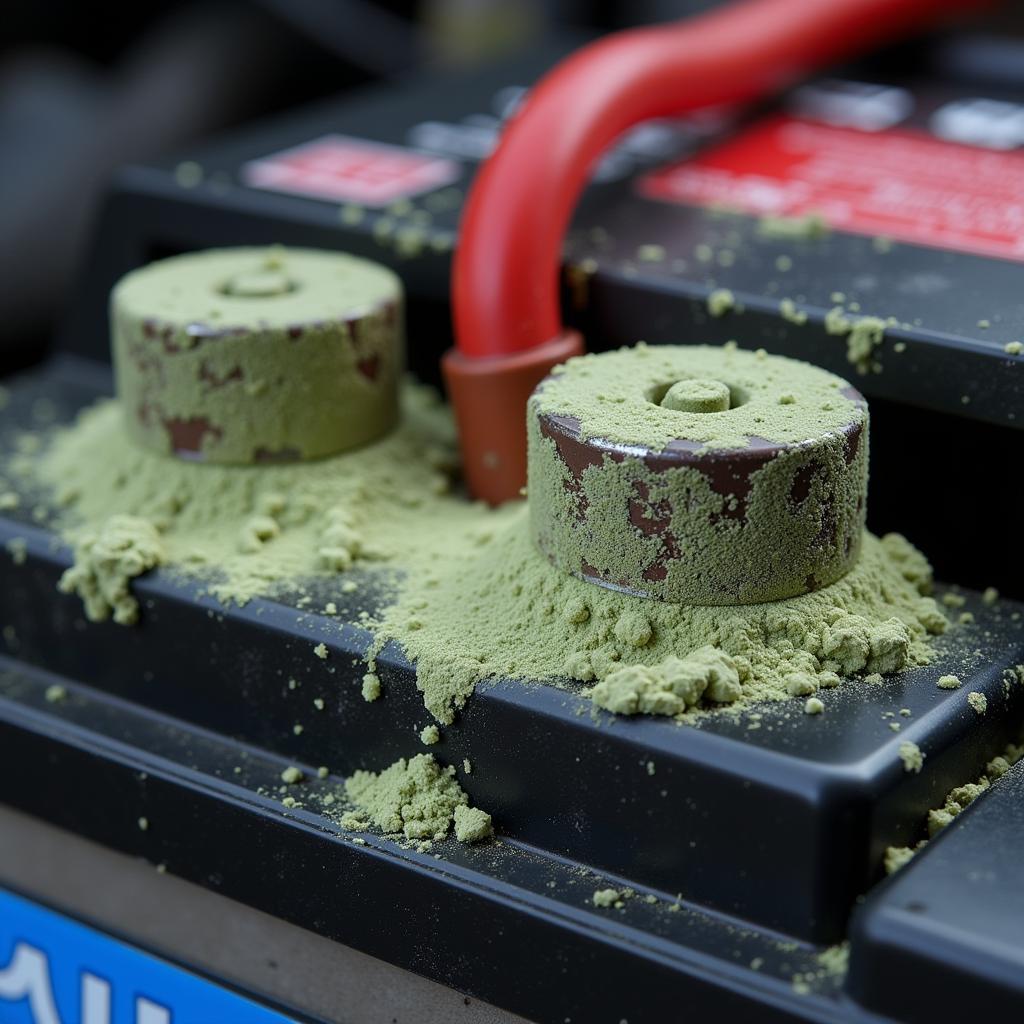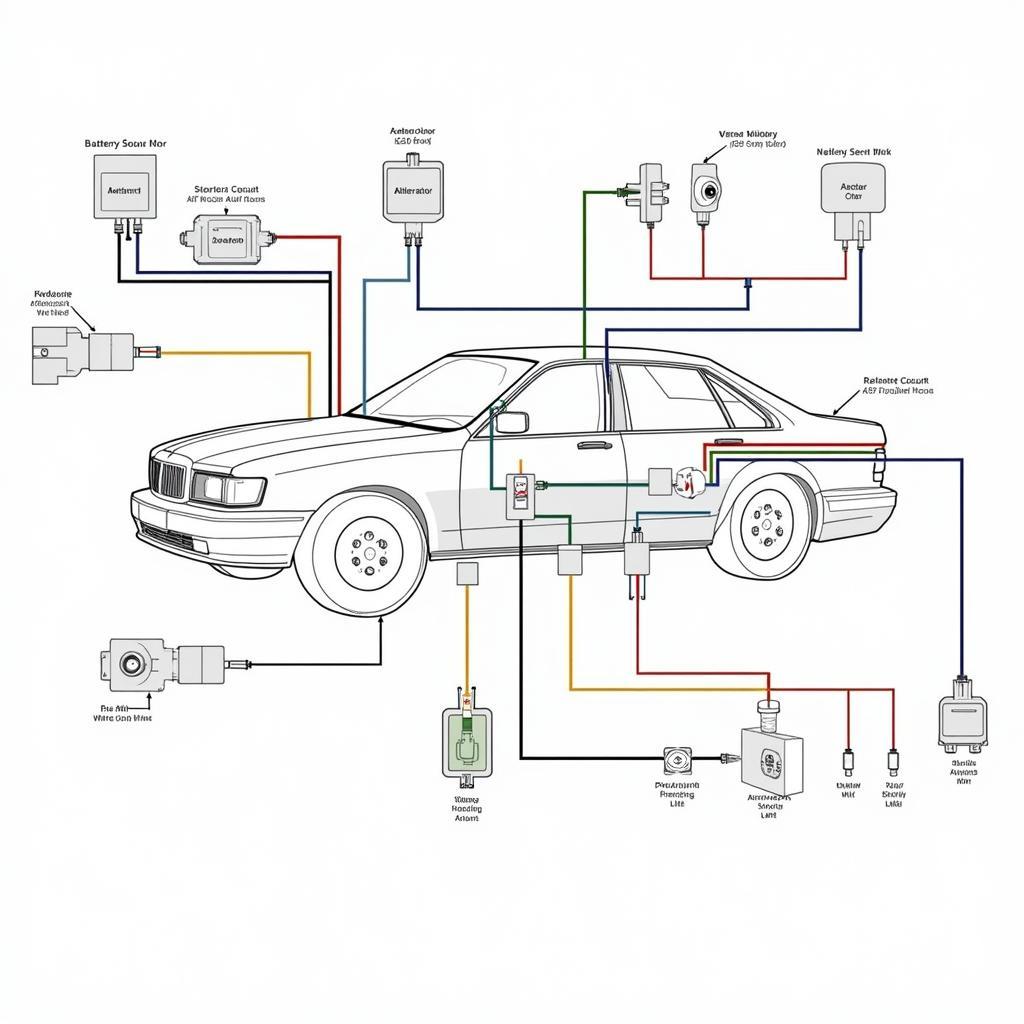Experiencing an Electrical Problem With Car Starting can be incredibly frustrating. Whether it’s a slow crank, a clicking sound, or complete silence, this issue can leave you stranded and searching for answers. This guide provides a comprehensive overview of the common causes of electrical starting problems, how to diagnose them, and potential solutions.
One of the most common problems is a failing starter motor. For more information on starter problems, see our article on symptoms of a car starter problem.
Common Causes of Electrical Car Starting Problems
Several electrical components can contribute to car starting issues. Understanding these components and their functions is crucial for accurate diagnosis.
Battery Issues
The battery is the heart of your car’s electrical system. A weak or dead battery is the most frequent culprit behind starting problems. Corrosion on the terminals, low electrolyte levels, or simply an old battery can all prevent sufficient power from reaching the starter motor.
Starter Motor Malfunction
The starter motor is responsible for cranking the engine. A faulty starter motor may produce a clicking sound when you turn the key, or it might not react at all. Internal damage, worn brushes, or a faulty solenoid can all lead to starter motor failure.
Alternator Problems
While the alternator doesn’t directly start the car, it recharges the battery while the engine is running. A malfunctioning alternator can lead to a drained battery, which in turn causes starting problems.
 Car Battery Corrosion Causing Starting Problems
Car Battery Corrosion Causing Starting Problems
Wiring and Connection Issues
Loose or corroded connections, damaged wiring, and faulty relays can interrupt the flow of electricity to the starter motor. These issues can be difficult to pinpoint but are often the cause of intermittent starting problems.
Ignition Switch Problems
The ignition switch supplies power to various components, including the starter motor. A faulty ignition switch can prevent the starter from engaging. Diagnosing this issue usually involves testing the voltage at different points in the ignition circuit. You can find helpful advice on diagnosing general car problems, including electrical issues, in our article about diagnosing car problems UK.
Diagnosing Electrical Starting Problems
- Check the Battery: Visually inspect the battery for corrosion and check the voltage with a multimeter. A reading below 12.6 volts indicates a weak battery.
- Test the Starter Motor: A clicking sound when turning the key often suggests a faulty starter. A “load test” can confirm the diagnosis.
- Inspect the Alternator: Check the alternator’s output voltage while the engine is running. A low reading indicates a problem.
- Examine Wiring and Connections: Trace the wiring from the battery to the starter, looking for loose, corroded, or damaged connections.
- Test the Ignition Switch: Use a multimeter to check the voltage at different points in the ignition circuit. Consult a wiring diagram for your specific car model.
Many older muscle cars can experience a variety of electrical issues that prevent starting. For more information on these specific vehicles, see our article on muscle car problems.
Solutions for Electrical Car Starting Problems
- Battery Replacement: A weak or dead battery will need to be replaced.
- Starter Motor Repair or Replacement: A faulty starter motor can often be repaired, but replacement is sometimes necessary.
- Alternator Repair or Replacement: A malfunctioning alternator will need to be repaired or replaced.
- Wiring and Connection Repair: Clean, tighten, or replace any corroded or damaged wiring and connections.
- Ignition Switch Replacement: A faulty ignition switch will typically require replacement.
Conclusion
Electrical problems with car starting can be challenging, but with a systematic approach to diagnosis and repair, you can get your car back on the road. Remember to prioritize safety and consider seeking professional assistance if you’re unsure about any step of the process. We encourage you to contact AutoTipPro at +1 (641) 206-8880 or visit our office at 500 N St Mary’s St, San Antonio, TX 78205, United States, for further assistance with your electrical problem with car starting. We’re here to help!
A dead battery is the most common problem of a car not starting. Read more about common car starting problems here.





Leave a Reply